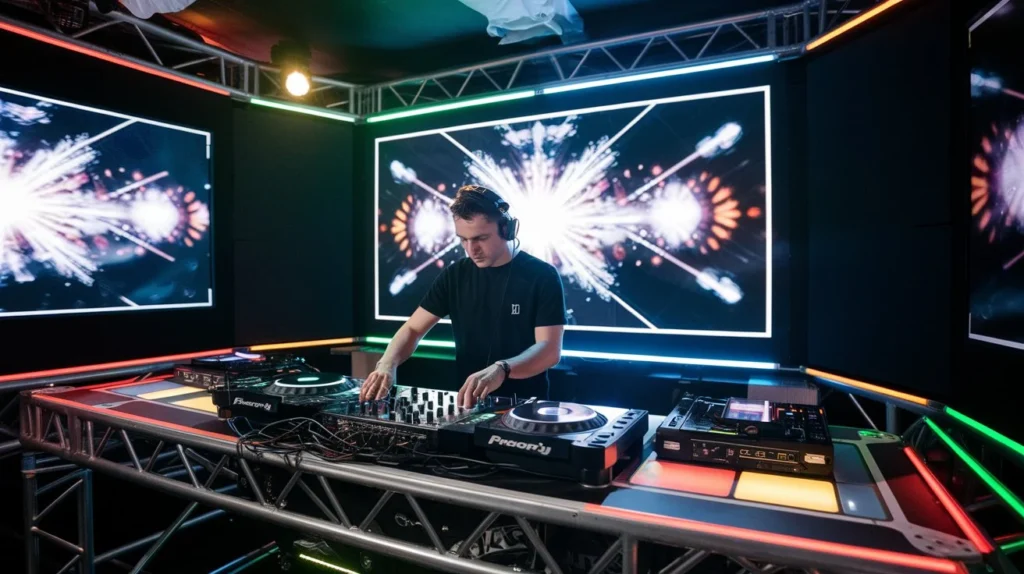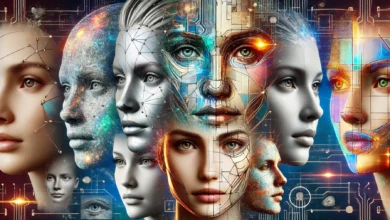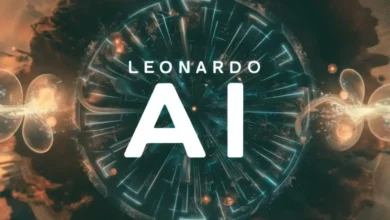
OpenAI Jukebox Equivalent: The Future Of Music In AI
Today AI is much more advanced than it was several years ago. It has found application in almost all fields of like medicine, media among others. However, one of the most interesting and promising trends is now developing AI music. Other such systems proposed in the literature include OpenAI’s Jukebox, which synthesizes music that is in the style of different artists. It even generates lyrics, making the whole thing realistic and as if one is singing along. But Jukebox does not remain the only tool in this area. Huge numbers of other alternatives and equivalents exist.
In this article, we’ll take our first look at OpenAI Jukebox Equivalent, look into other tools in the same vein, and discuss how the future of music production is being influenced by AI-generated music.
What Is OpenAI Jukebox?
Now, let’s explore what OpenAI Jukebox is before we go any further discussing alternatives. OpenAI Jukebox was launched in 2020 as a neural network that can create music with vocals and even lyrics. of reproducing other styles and artists, and all together gives users a new experience. Jukebox utilizes raw audio files and compresses them before using machine learning in order to create or regenerate tracks. The model is trained on thousands of songs across the genres which will provide the model with vast choice for learning.
For example, you can ask Jukebox to generate a song in the Beatles mode or Elvis mode. The result might well sound uncannily like what the actual artist might have produced on a particular piece of music. That’s the magic of this AI. They marry the so-called deep learning with creativity, meaning that the system that generated music is beyond complex and has the creative streak to create unique pieces.
Why Seek out OpenAI Jukebox Like Models?

Though OpenAI Jukebox is quite innovative, it has its flaws. For one, it takes significant computing to make music, as has been discussed in a part above. This makes it relatively inconvenient for the average user to use the software. Moreover, the produced melodies, although good, are not always connected in a consistent manner over larger sequences. You might have a different priority list and require something considerably simpler or designed for your kind of work. As such, searching for the OpenAI Jukebox of the future is organic for many users who expect similar capabilities without all the technicality.
AI Music Generators: What Are the Alternatives?
So after learning about the flaws associated with Jukebox, let me further introduce its equivalents. These alternatives also produce AI music, and all of them have distinct features that could be interesting in view of possible user preferences. That is why it will be interesting to consider some of the most vivid examples of such an appropriate.
1. Aiva: AI for Classical Composers
Aiva is a music AI generator that specializes mainly in generation of classical music. However, it’s better for users in search of instrumentals rather than popular or Rock music songs. Aiva has been employed by composers, game developers along with movie makers. It provides a unique mechanism by which the users can select from different tones and instrumental pieces.
Another strength of Aiva is that it is easy to use. To add music into them you do not have to be a technical person or anyone with a lot of technical knowledge. Just pick things you like, and the AI will offer a composition based on what you indicated. While Jukebox is less controlled, Aiva provides actual result to the user that is usually more coherent especially for longer durations.
Aiva can be used as an alternative to Jukebox if you are a fan of classical music or need a soundtrack for any material.
2. Amper Music: Easy and Fast AI Music
If there is a need for fast composing and convenient and understandable interface – consider Amper Music. This kind of music service is aimed at those people who want to listen to music as soon as possible and do not want to spend time getting used to those programmes on the Internet. When using Amper there are many genres and styles to choose from but vocals are not generated like in Jukebox.
Currently one major competence of Amper is real-time customization. The way in which it has been developed also means that after the music has been generated you can still change the instruments and even tempo etc. That makes it more flexible to use since you have more control over the final outcome, making it suitable for content creators and marketers.
3. Boomy: AI Music for Everyone
Another excellent OpenAI Jukebox replacement is Boomy. About this product: Boomy stands out from the other applications it is competing with because, with its help, music can be produced even by an absolutely non-musical person. Boomy is not limited to use by musicians although all users will find it very useful in creating songs. It’s for anyone who works with music or desires to create it without great efforts and time.
Boomy will allow a client to select a genre like lo-fi, electronic, or ambient and in less than 5 minutes, an AI will have created an entire song. It even has some options to add effects to it or change the mood of the song you are using.
This platform is also less complex in terms of navigation and use, than Jukebox, for instance. Jukebox is quite demanding in terms of computational power, whereas Boomy operates in the cloud, so you only need the internet.
4. MuseNet: Another OpenAI Music Generator
While we have talked mainly about Jukebox, MuseNet is another use of OpenAI technology for generating music. With MuseNet implementing compositions with up to 10 different instruments is feasible, and with MuseNet implementing compositions in the style of well known composers such as Mozart or more modern artists such as Lady Gaga is possible.
The main idea is that MuseNet is oriented primarily in the instrumental genre, while Jukebox is designed to compose whole songs, possibly with texts and vocals. Due to this it is favorable to use it especially when in search for specific instrumental tracks and not songs.
In addition, MuseNet also proved to be lighter than Jukebox and can thus be recommended to users who wish to encounter a faster solution.
What are these tools that AI Uses in music?

Based on the few OpenAI Jukebox equivalents listed above, you may ask the question; “How do such tools function?” Almost all AI music production systems employ neural network and machine learning algorithms. They read through huge quantities of music in search of some patterns in rhythm, melody and other facets of harmony. After they have ‘trained’ themselves, they are able to create new music relying on the information received from the user.
For instance, OpenAI Jukebox uses the transformer models for audio processing and for generating the audio data. A transformer model is, in fact, a kind of neural network that can be used effectively for generation and proved to be perfect for music generation. Likewise, Aiva, Amper, and Boomy employ those custom models trained concerning certain genres or types of music only.
Can we be replaced by music AI?
This is the million-dollar question. Is it possible to consider artificial intelligence music as a viable replacement for human music? The short answer is: well not quite but it is closer, and with better motivation, and more practice the could get better results. There are music models currently as good as Jukebox for generating instrumental tracks or reproducing an artist. But they are not yet fall of passions and their emotions are not as vivid as in real musicians —Yes.
It is, however, important to note that this brand of music can a little monotonous or even disjointed at times. Live musicians, on the other hand, can convey emotion, prior knowledge and experiment that AI can hardly imitate.
However, in the given industry, AI-generated music has turned into an indispensable asset, especially for authors who require music, fast and cheap.
AI and its place in the future of Music
The future looks promising for music that is created by AI. That visualization indicates that as the years go on the music generators will soon enough become much more powerful. These tools could be further refined, thus enabling users to develop more complicated and emotionally charged pieces of work.
Who knows? This means that in the future AI might even work with musicians to actually generate completely new kinds of music. The outcomes are virtually limitless.
Conclusion
So, what is the perfect substitute for the OpenAI Jukebox? The answer depends on what of yours you want to be naked. Aiva can be considered as good option if you are seeking for classical pieces. But if you seek some faster and more convenient tool, it may be of the help either Amper or Boomy for you. But if you’re into instrumental music, MuseNet is quite a strong contender against Jukebox.
This is a fast-growing area and it is important for musicians and technologists alike. If someone is a professional musician or working in media production or just interested in AI then there are many AI music generators available.
Frequent Asked Questions
Can I use OpenAI Jukebox or its equivalents for commercial projects?
Yes, many AI music generators allow for commercial use, but the terms and conditions vary. OpenAI Jukebox is primarily a research project, so its music generation isn’t designed specifically for commercial purposes. However, alternatives like Amper Music and Boomy offer licensing options, making them suitable for content creators, marketers, and businesses. Always check the usage rights on each platform before using the generated music commercially.
Do I need musical knowledge to use these AI music tools?
Not at all! One of the best things about AI music generators like Boomy and Amper is that they are designed to be user-friendly, even for people without any musical background. You simply pick a style or genre, and the AI does the rest. If you want more customization, platforms like Aiva offer more advanced controls, but they still don’t require deep musical expertise.



